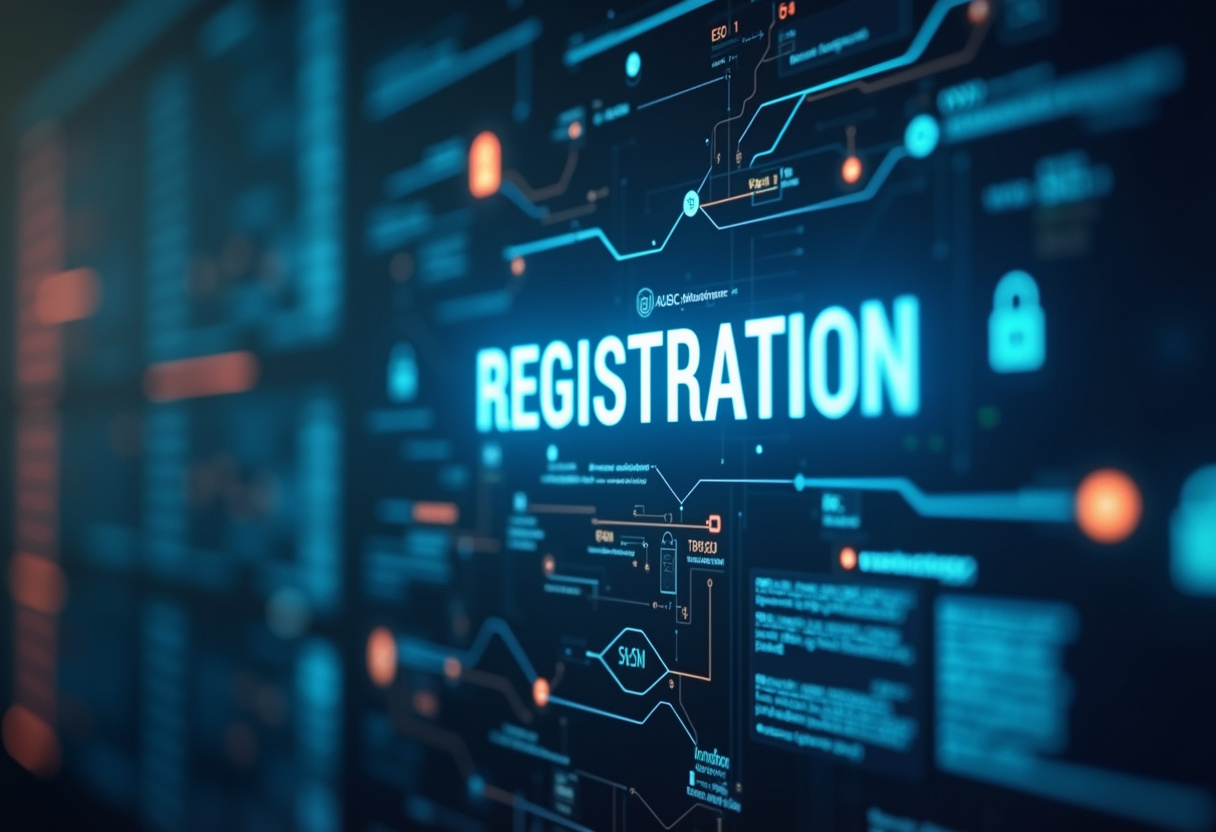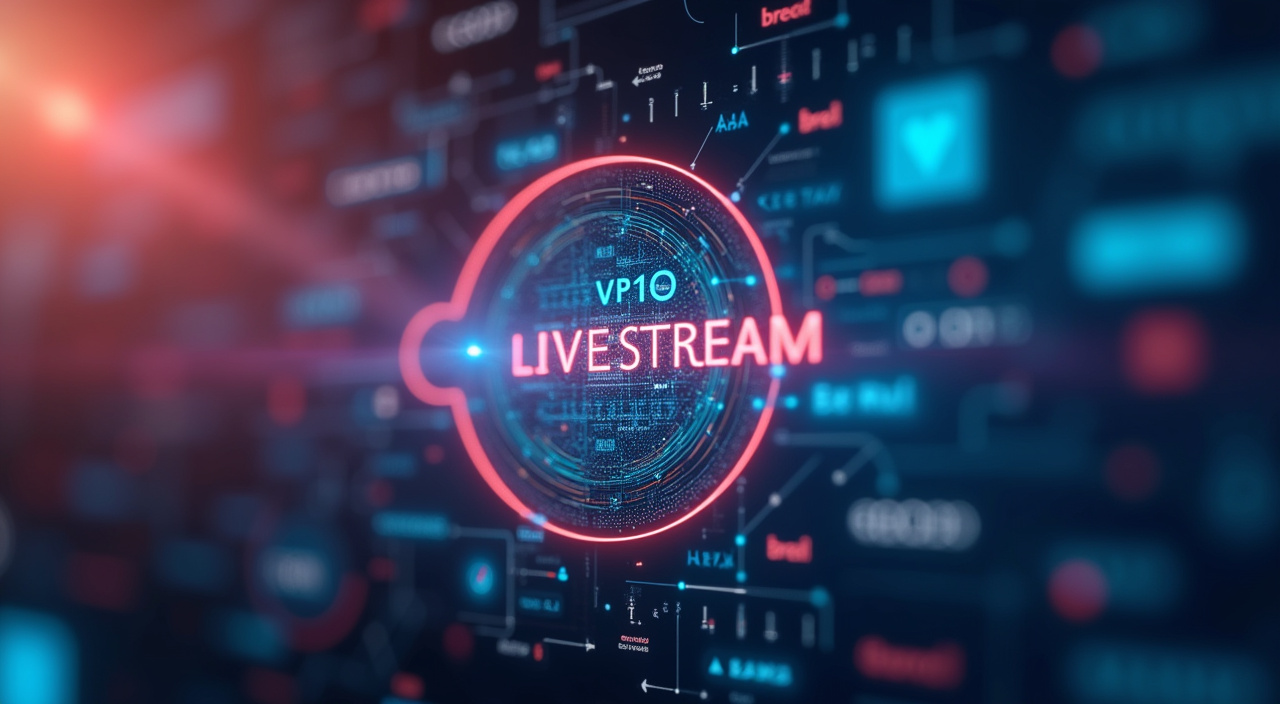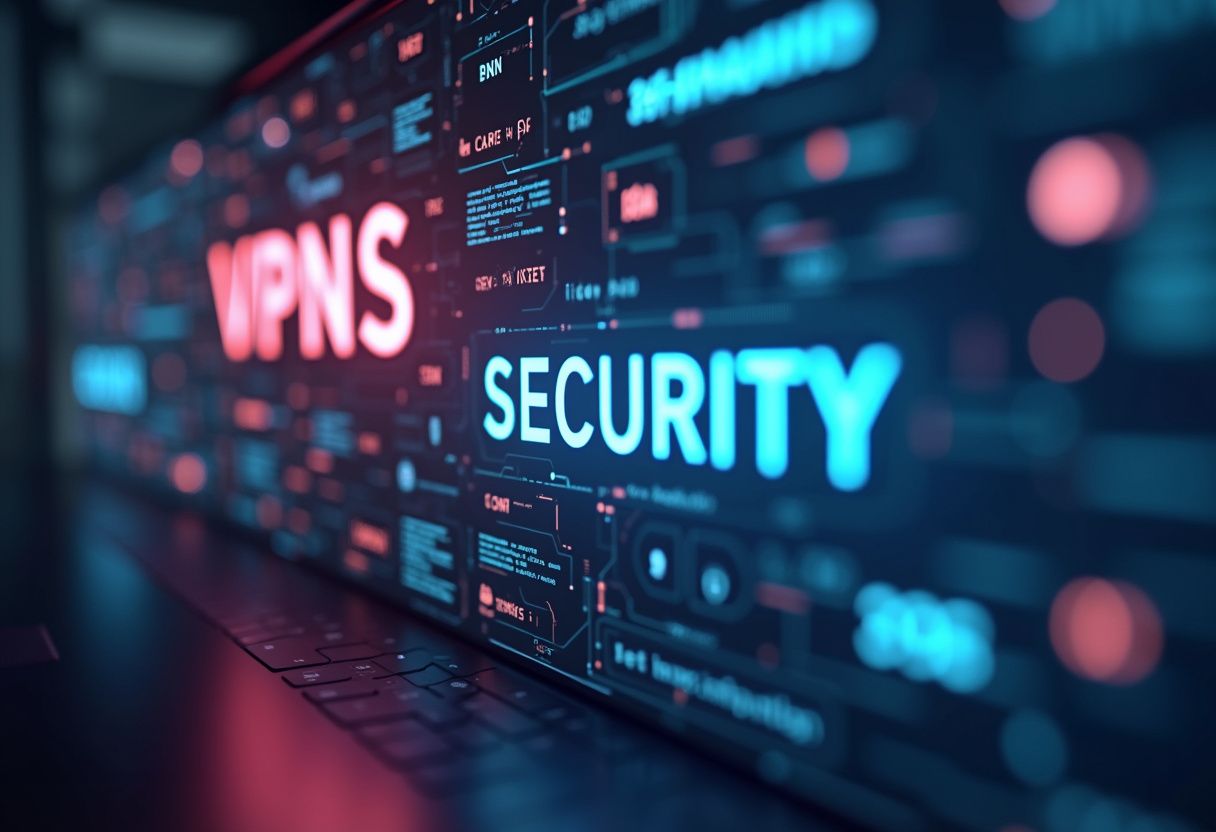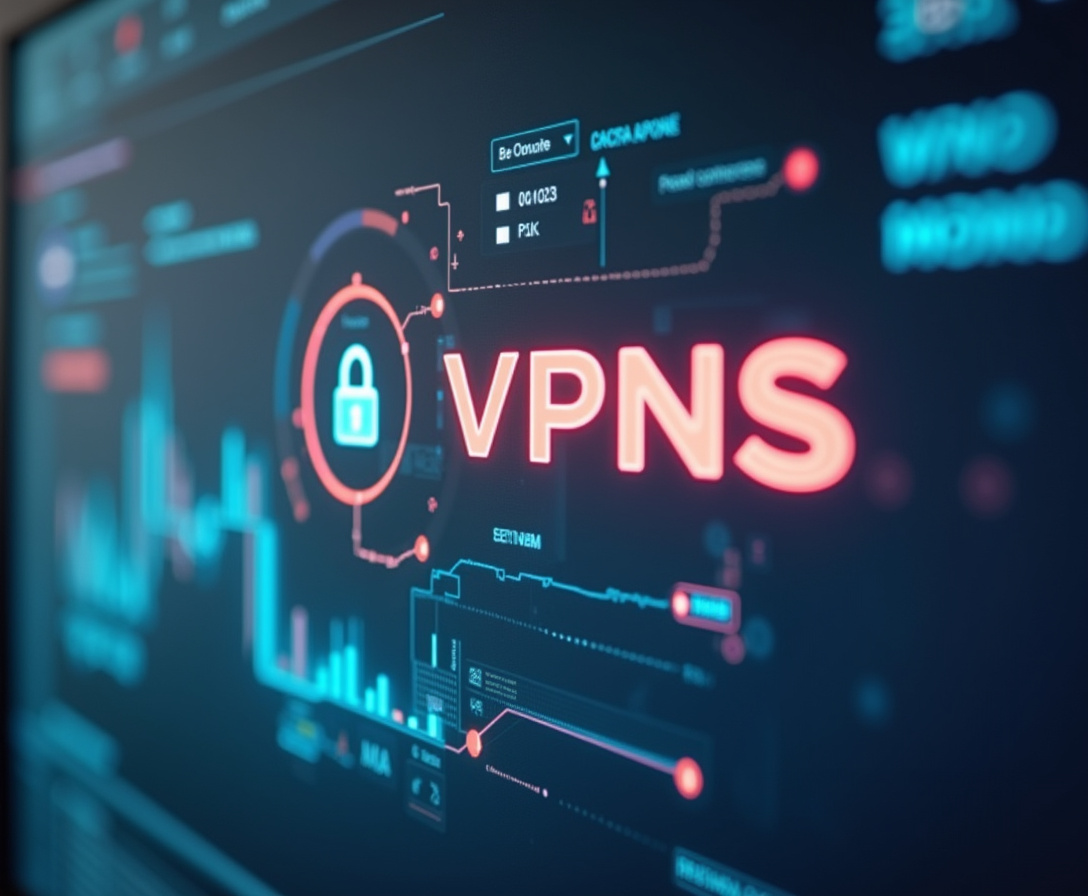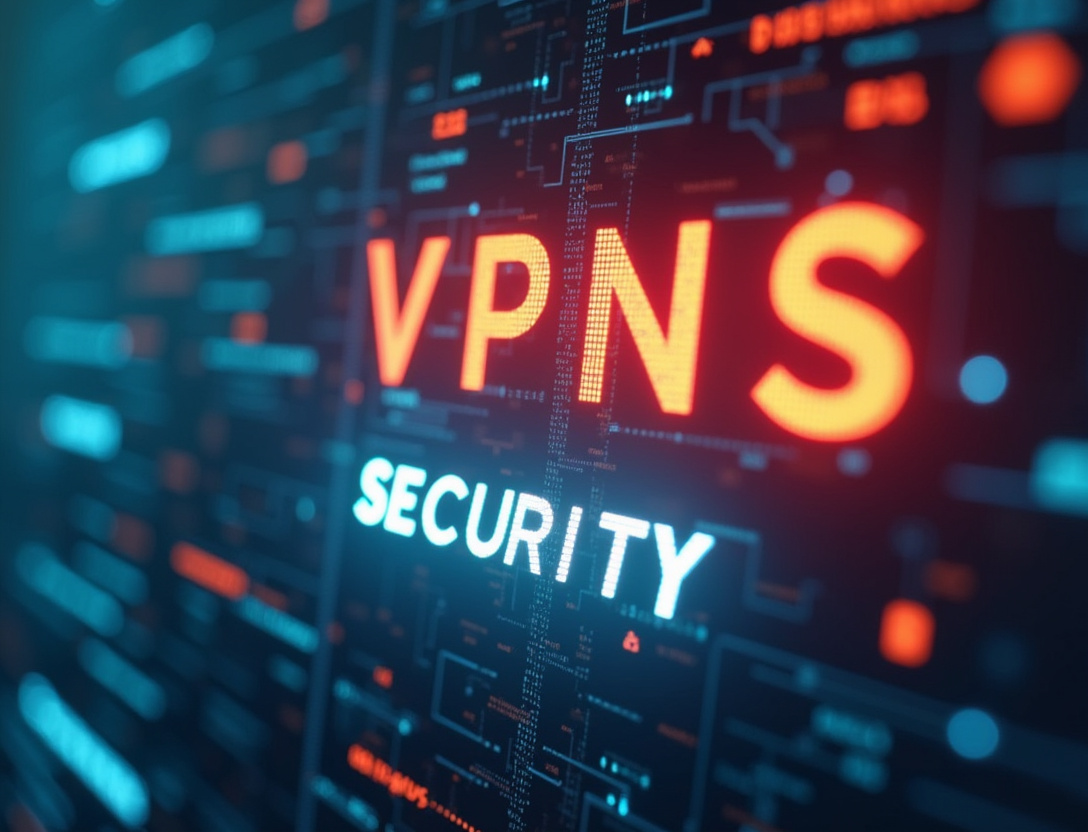VPNs for Virtual Events: Ensuring Audience Data Privacy

Table of Contents
Introduction to VPNs for Event Streaming
In an increasingly interconnected world, virtual events have transcended geographical barriers to become indispensable tools for businesses, educators, and communities alike. From sprawling international conferences to intimate online workshops, these digital gatherings offer unprecedented opportunities for collaboration, knowledge sharing, and engagement. However, the seamless veneer of virtual events often conceals a complex web of potential security vulnerabilities that can compromise the privacy and security of attendees' data.
In the real world, event security is a tangible presence – uniformed personnel, controlled access points, and visible surveillance systems. But in the virtual world, security measures are less obvious but every bit as critical. The stakes are high: breaches of attendee data can lead to identity theft, financial losses, reputational damage, and a erosion of trust in the event organizer.
Securing these virtual spaces, therefore, is paramount. A Virtual Private Network (VPN) acts as a powerful tool in the arsenal of event organizers looking to build, secure, and successful virtual events. A VPN provides a secure, encrypted connection that protects data from eavesdropping, interception, and theft.
By masking IP addresses and routing traffic through secure servers, VPNs significantly reduce the risk of data breaches and ensure the confidentiality of sensitive information exchanged during the event. This article embarks on a comprehensive exploration of the role of VPNs in securing virtual events, focusing on how they contribute to 'audience data security', 'interaction protection', and overall 'experience enhancement'. We will delve into the underlying principles of VPN technology, carefully examining the different types of VPNs, their advantages and limitations, and practical implementation strategies tailored to the unique demands of virtual events.
Furthermore, we will analyze the common cyber threats that target virtual gatherings and illustrate how VPNs can serve as a vital layer of defense against these malicious attacks. From ensuring compliance with data privacy regulations to fostering a secure and trustworthy environment for all participants, this article aims to provide event organizers with the knowledge and actionable insights they need to leverage VPNs effectively, transforming virtual events from potential security risks into secure and thriving digital ecosystems. The digital age requires a shift in thinking about event security, prioritizing preventive measures like employing a 'virtual event VPN'.
This proactive approach is essential to safeguarding 'audience data security', guaranteeing 'interaction protection', and building a positive 'experience enhancement', demonstrating that a 'VPN for events' can build trust and engagement. Beyond just offering a platform, the responsible organizers protect their community.
The core of VPN security lies in its ability to establish a secure, encrypted conduit for data transmission. When an individual accesses a virtual event via a VPN, all internet traffic originating from their device is redirected through a VPN server. This server then encrypts the data, rendering it unreadable to unauthorized parties, and conceals the user's actual IP address, effectively masking their location and identity.
The encryption protocols employed by VPNs, such as Advanced Encryption Standard (AES) with 256-bit keys, are considered practically unbreakable with current computing technology, providing a robust defense against even the most sophisticated cyberattacks. The IP address masking capability further enhances security by preventing attackers from tracing network activity back to the individual user. This is particularly crucial in the context of virtual events, where attendees may be sharing sensitive personal data or engaging in confidential business discussions.
Without the protection of a VPN, this information becomes vulnerable on several fronts. These include man-in-the-middle attacks, a situation where malicious parties intercept communications between two devices; eavesdropping, or secretly gathering data transmitted over the network; and data breaches that expose private or sensitive data. A man-in-the-middle attack lets an attacker intercept and potentially alter data, allowing them to steal personal information.
Eavesdropping allows attackers to steal sensitive data like credentials or credit card numbers. Data breaches can result in a considerable amount of personal data being accessed by unauthorized parties, including financial and health information. Beyond protecting data in transit, VPNs also play a critical role in bolstering the security of the client's device.
By routing traffic through a secure server, VPNs shield users from visiting malicious websites or falling victim to phishing schemes. This is particularly important for those attendees connecting to virtual events via public Wi-Fi networks, which are notoriously unsecured and vulnerable to exploitation. When choosing a VPN solution for virtual events, careful consideration must be given to its security features.
It's really important to look for VPNs that use strong encryption protocols, support IP address masking, and shield against DNS leaks that could expose user DNS queries to third parties. The provider's logging policy is another important factor; trust the VPN providers with a strict "no logs" policy that doesn't retain user data. By emphasizing 'audience data security' as the top priority, organizers deploying a 'virtual event VPN' are securing the digital exchange for all attendees.
Enacting effective encryption and masking technologies, especially through 'interaction protection', is key to enriching the 'experience ehancement', signaling the need for 'VPN for events' in planning any secure virtual ecosystem.
personal VPN
VPN technology presents a spectrum of deployment models, each tailored to specific needs and operational scenarios within the virtual event arena. Picking the precise model is vital for event coordinators to properly secure the data of attendees. First, a hands the power of secure connections to the participant.
In this scenario, each attendee installs their own VPN client on their device, individually creating a secure channel to the VPN server. The VPN's infrastructure of servers is maintained directly by the VPN provider, who is also tasked with making sure each connection is secure. This option is commonly used for smaller events, where users are trusted to secure their own connections.
By promoting the use of VPNs, events can create a more secure environment through enhanced 'audience data security'. Second, an helps the events team facilitate secure participation for all attendees. Under this model, each participant is given specific instructions and access to secure virtual event infrastructure.
The organization is able to select the best server and apply rules universally for a uniform experience. This option is best for large events that need a high level of security. Third, a creates a connection between two or more secure locales using the internet.
Virtual events can utilize this method to host media from remote broadcasting centers or integrate cloud-based streaming tools. This creates a safe passage between networks, and secures all sensitive data shared. The selection of a appropriate tunnelling protocol is also essential when securing virtual events.
For example, OpenVPN is an accessible, open-source protocol known for being flexible and robust. It can be configured to use additional security protocols, offering even more security. WireGuard is another protocol offering faster transmission and improved security relative to standard VPN protocols.
Using a sleek codebase and advanced methods, it's also easy to maintain. IPsec (Internet Protocol Security) is another option that many enterprise organizations can also take advantage of to create very safe networks between different branches. When it comes to selecting a solution, scalability is also of importance.
Virtual events can scale fast, so systems must be able to deal with that growth. Look to providers that offer flexible server access to meet fast scaling demands. The costs associated with each plan should also be carefully looked into, so as to ensure no un needed spending during the event.
When choosing a VPN, make sure that it has the ability to perform properly under heavy load during the live event. The goal should be to allow participants to focus on the material, and nothing technical. To reiterate, the central goal of using a 'virtual event VPN' is to enforce robust 'audience data security' and robust 'interaction protection', all while making for an amazing 'experience enhancement' by having seamless performance, and a 'VPN for events' is the tool for the job.
Distributed Denial of Service (DDoS) attacks
The digital landscape is fraught with cyber threats, and virtual events are no exception. These events, which often involve the exchange of sensitive information and the participation of numerous individuals, present a tempting target for malicious actors seeking to disrupt operations, steal data, or compromise systems. Understanding these threats and implementing appropriate security measures is paramount for ensuring the success and integrity of virtual events.
One of the most prevalent threats is . DDoS attacks overwhelm a server with a flood of traffic, rendering it unavailable to legitimate users. In the context of virtual events, a successful DDoS attack can disrupt streaming, prevent attendees from accessing the event platform, and cause significant reputational damage.
VPNs can mitigate DDoS attacks by masking the event server's IP address and distributing traffic across multiple VPN servers, making it more difficult for attackers to target the primary server. Another significant threat is . Data breaches occur when unauthorized individuals gain access to sensitive data, such as attendee registration information, financial details, or personal communications.
VPNs can prevent data breaches by encrypting all traffic between attendees and the event server, making it virtually impossible for attackers to intercept and decipher the data. is another concern. Attackers can intercept unencrypted network traffic to steal login credentials, financial information, or other sensitive data.
VPNs prevent eavesdropping by encrypting all network traffic, ensuring that even if an attacker intercepts the data, they will not be able to read it. are also a serious threat. Phishing attacks involve sending fraudulent emails or messages that trick attendees into revealing sensitive information, such as login credentials or credit card numbers.
VPNs can help prevent phishing attacks by blocking access to known phishing websites and alerting attendees to suspicious emails or messages. Beyond these common threats, virtual events are also vulnerable to more sophisticated attacks, such as . Zero-day exploits target previously unknown vulnerabilities in software or hardware.
VPNs can provide a layer of protection against zero-day exploits by isolating attendees from the event server and preventing attackers from directly targeting their devices. To effectively mitigate these threats, event organizers should implement a multi-layered security approach that includes VPNs, firewalls, intrusion detection systems, and regular security audits. They should also educate attendees about the importance of online security and provide them with guidance on how to protect their devices and data.
Furthermore, it is paramount to continuously monitor network traffic for suspicious activity and respond swiftly to any security incidents. Adopting a proactive security posture is essential for ensuring the safety and success of virtual events. Addressing the multitude of cyber threats demands a calculated approach to security.
Implementing a 'virtual event VPN' serves as a cornerstone defense, ensuring robust 'audience data security' and proactive 'interaction protection'. Prioritizing a secure environment elevates the overall 'experience enhancement', cementing the crucial role of a 'VPN for events' in today's event landscape.
access to geographically restricted content
Beyond security enhancements, VPNs offer a range of additional benefits that contribute to an enhanced and more seamless virtual event experience. One of the most notable advantages is . Many virtual events feature content that is only available to attendees in specific regions due to licensing agreements or other restrictions.
VPNs allow attendees to bypass these restrictions by connecting to a server in a permitted region, granting them access to the full range of event content. This is particularly valuable for international events with a diverse audience spanning multiple continents. Another benefit is .
In some cases, attendees may experience unstable or unreliable internet connections, particularly when connecting from public Wi-Fi networks or regions with limited bandwidth. VPNs can improve connection stability by routing traffic through optimized servers and encrypting data, reducing the risk of dropped connections or buffering issues. This ensures a more consistent and enjoyable viewing experience for attendees.
is also a significant advantage, particularly for events involving attendees from countries with strict internet censorship policies. VPNs allow attendees to circumvent censorship by masking their IP address and encrypting their traffic, granting them access to blocked websites and services. This ensures that all attendees have equal access to event resources and can participate fully in discussions and activities.
VPN use can significantly improve customer trust towards the brand organizing the event. Attendees are more probable to trust an event where their data is protected. Thus, organizers should publicize the VPN usage to all the attendees.
The communication strategy should also include the technology choices for the VPN and security practices used. Doing so would increase participation numbers because user would be more comfortable with the usage of the platform than the security is ensured. When effectively combined, the enhancement to security allows for increased attendees and their engagement over the virtual event platform's lifecycle.
This will translate into business profits through increased sales generation. To maximize the benefits of VPNs in virtual events, event organizers should provide clear and concise instructions to attendees on how to connect to the VPN. They should also offer technical support to assist attendees with any connectivity issues.
Furthermore, organizers should choose VPN providers with a proven track record of reliability and security, and ensure that the VPN infrastructure is properly configured to handle the demands of a large virtual event. By leveraging the capabilities of VPNs strategically, event organizers can create a secure, accessible, and engaging virtual event experience for all attendees ultimately leading to increased attendee trust and participation. The strategic deployment of a 'virtual event VPN' extends beyond basic security, fostering meaningful 'experience enhancement' through reliable access and seamless engagement.
By prioritizing 'audience data security' and ensuring consistent 'interaction protection', the 'VPN for events' emerges as a key differentiator, building trust and maximizing participation in the digital event space.
Stay Updated
Get the latest VPN news, tips, and exclusive deals to your inbox.
